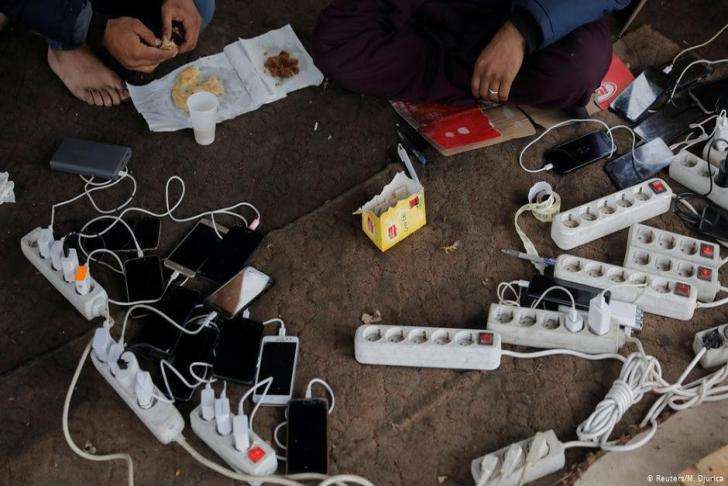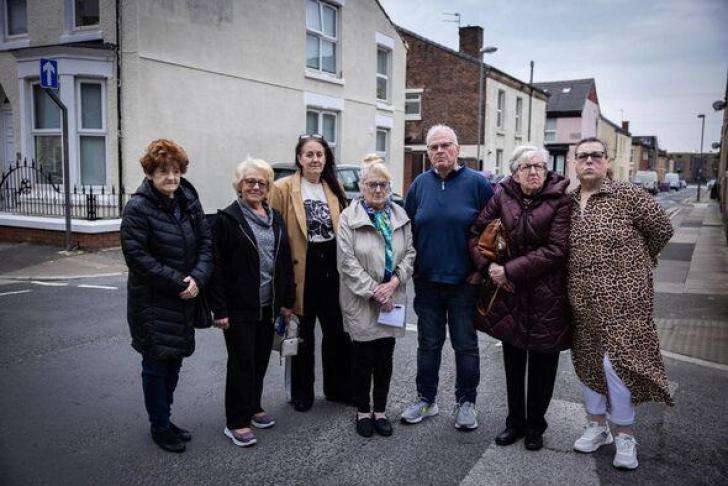To reduce communication with charity and activists, migrants who have been imprisoned and are scheduled to be transferred to Rwanda have had their smartphones taken away from them.
Rather from being allowed to access the internet to look for charity or legal firms that could assist them in challenging their incarceration, the migrants have been given "brick" phones.
Due to the restrictions, people are unable to access their contact list, encrypted WhatsApp conversations or messages, or the most recent information regarding demonstrations that they can participate in.
The ban on internet-enabled phones and cameras has been imposed under detention rules at the seven immigration removal centres in the UK where the migrants are being held ahead of their deportation flights scheduled for July.
It could help officials limit the risk of protests disrupting deportations. Last week protesters prevented a coach taking asylum seekers from a hotel in Peckham, south London, to the Bibby barge in Dorset.
Despite the ban, more than 120 migrants have so far contacted charities opposed to the Rwanda scheme who are putting them in contact with immigration lawyers.
Charities such as Care4Calais have been distributing information leaflets to asylum seekers which include their emergency number to get around the restrictions.
Many are expected to seek bail from the removal centres, raising the risk of absconding, and challenge their deportations on the basis that Rwanda is unsafe for them individually or could cause them “serious and irreversible harm”.
Steve Smith, chief executive of Care4Calais, said: “Removing smartphones degrades the ability of those detained to communicate and to access information. They immediately lose access to their contacts list.
“They cannot perform a search function to track down those who might help them, such as charities like ourselves, or law firms.
“They become isolated from the latest news. For example, they won’t hear about protests in their support.
“Additionally, brick phones are only set up to communicate in English. For example, you can’t send a text in Arabic. They have no translation function such as Google translate. This further isolates the detainee.
“Their level of distress cannot be overemphasised. The removal of their smartphones is simply adding to the sense of shock and trauma.”
The Home Office said migrants detained for deportation were provided with “basic” mobile phones due to “safety and security”. They could have their own phone “without internet” or a phone that had “limited internet facilities” on a secure wireless network approved by the Home Office.
It came as Rwanda’s official spokesman Yolande Makolo said her government could not guarantee to take the tens of thousands of migrants who are currently banned from seeking asylum in the UK after arriving illegally across the Channel.
Asked by the BBC’s Sunday With Laura Kuenssberg if Rwanda would be able to process tens of thousands of migrants as part of the deal, Ms Makolo said: “We will be able to welcome the migrants that the UK sends over the lifetime of this partnership.
“What I cannot tell you is how many thousands we are taking in the first year or the second year. This will depend on very many factors that are being worked out right now.”
There are more than 50,000 migrants currently “in limbo” because they arrived after the Illegal Migration Act became law, banning them from claiming asylum, but unable, as yet, to be deported to Rwanda.
Ms Makolo also demanded that Foreign Office should review its advice to LGBT+ travellers that they could face abuse and discrimination if they travelled to Rwanda.
Pat McFadden, Labour’s campaign co-ordinator, on Sunday confirmed a Labour government would not bring back migrants who had already been sent to Rwanda but is expected to allow those “in limbo” to claim asylum.
_8.jpg)
_5.jpg)
_8.jpg)





.svg)


